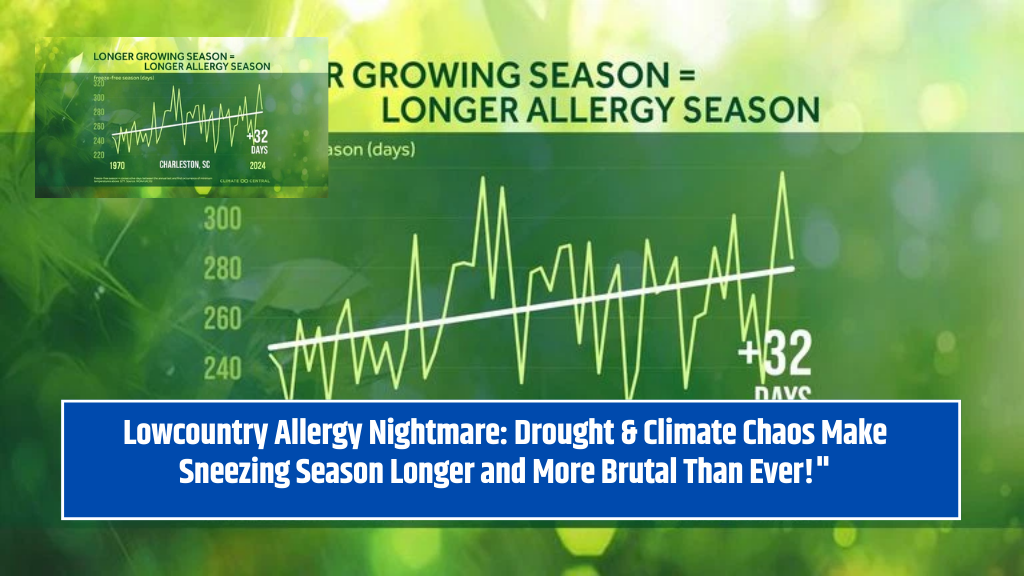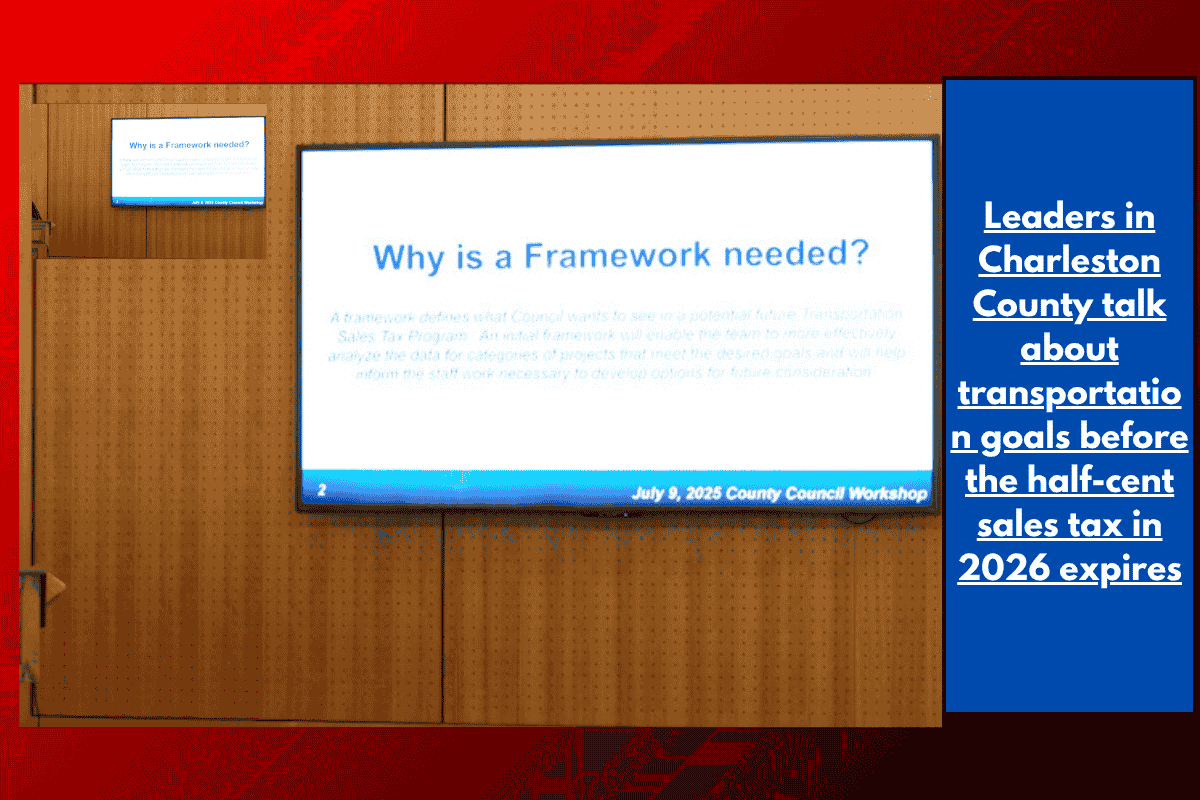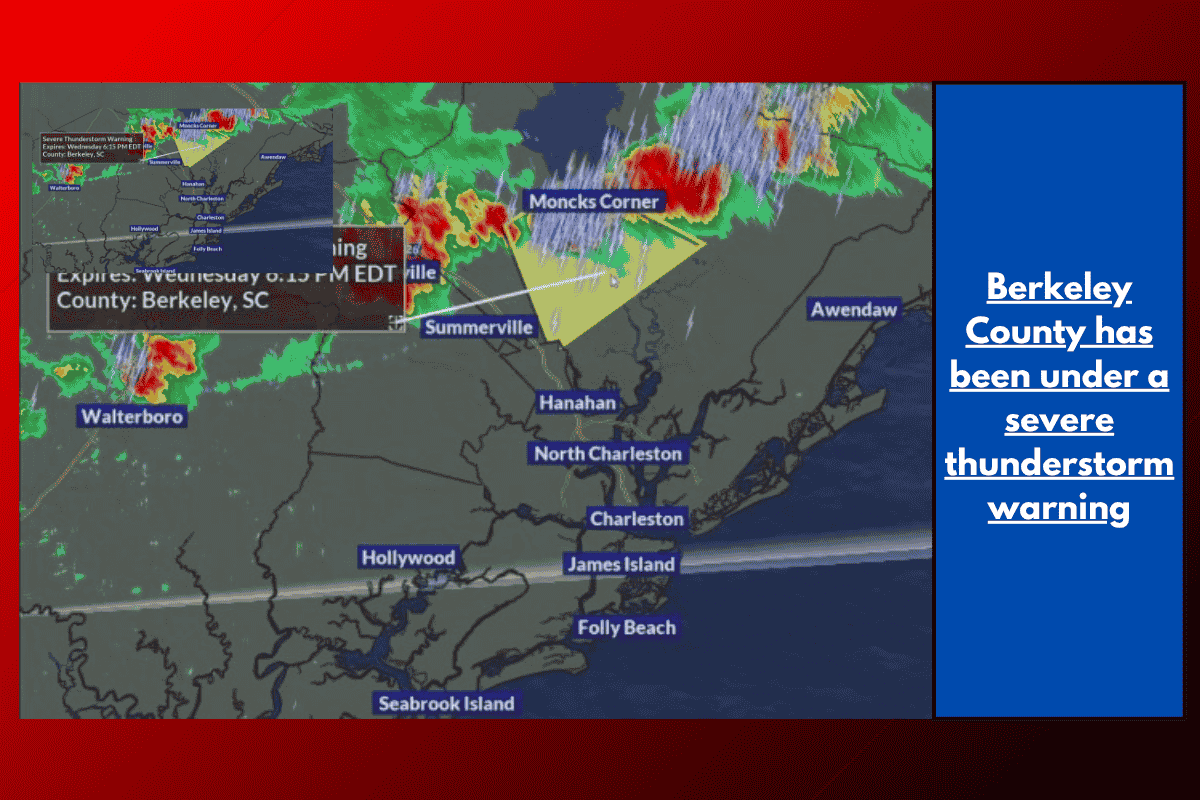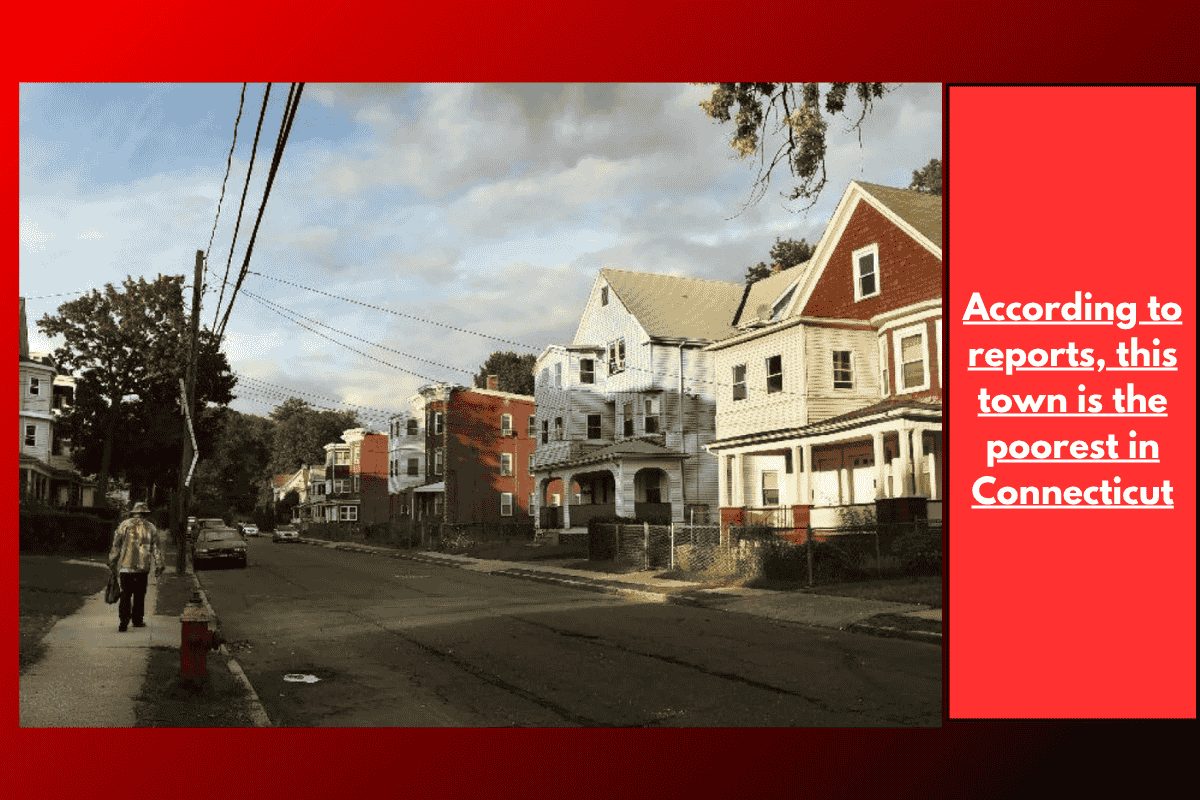In Charleston, allergy season has always been intense. But climate experts now warn that it may continue to stretch even further. Shel Winkley, a meteorologist and climate specialist at Climate Central, has highlighted Charleston as one of the U.S. cities with the biggest increase in its pollen season.
This means the time between the last cold day of winter and the first one of the next season — also known as the freeze-free season — is growing. In fact, Charleston’s freeze-free season has already increased by about 32 days. That’s an entire extra month of potential allergy issues.
How Climate Change Affects Allergies
Spring usually brings April showers and blooming flowers in May. But with changing weather patterns and warmer temperatures, allergy season is not only starting earlier — it’s also lasting longer.
When the planet warms, thanks to carbon pollution acting like a blanket around the Earth, plants have more time to release pollen. Warmer weather means less frost, more plant growth, and a lot more pollen floating around in the air. This can cause people to feel allergy symptoms for a much longer part of the year than before.
Less Rain, More Pollen in 2025
Normally, spring rains help wash away pollen from the air, bringing some relief to allergy sufferers. But in 2025, Charleston hasn’t seen much rain. That dry weather means pollen just keeps building up — on your car, your porch, and in the air you breathe.
Without rain to clean the air, allergy symptoms can feel more severe. People may find themselves reaching for tissues and allergy medicine more often — and for more weeks out of the year.
What This Means for the Future
If this trend continues, Charleston’s allergy season might grow even longer in the coming years. That means more days with runny noses, itchy throats, watery eyes, and extra cleaning just to keep pollen at bay.
For those with asthma or severe allergies, this could lead to more health challenges, especially if treatments and awareness don’t keep up with the changes. Doctors might start recommending earlier or longer allergy treatments, and public health campaigns could become more common during these extended seasons.
The changes happening in Charleston are a clear sign of how climate change is affecting everyday life in ways people can feel — literally. Allergy seasons are lasting longer and becoming more intense because of warmer weather and shorter winters. With less rain in 2025, the usual relief hasn’t come, making this year especially tough for allergy sufferers. As the climate continues to change, staying informed and prepared will be key to managing the sneezes and sniffles of the future.














